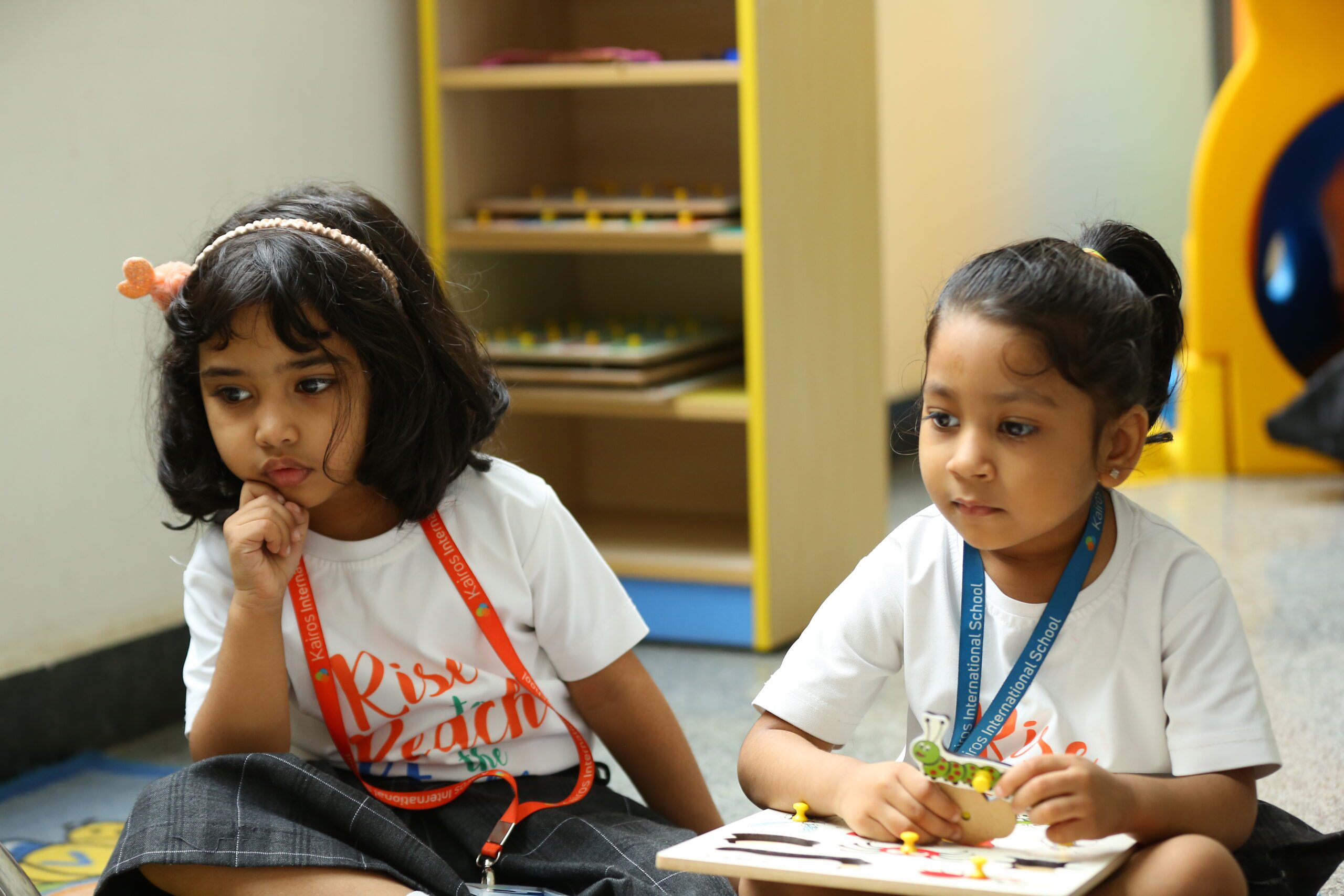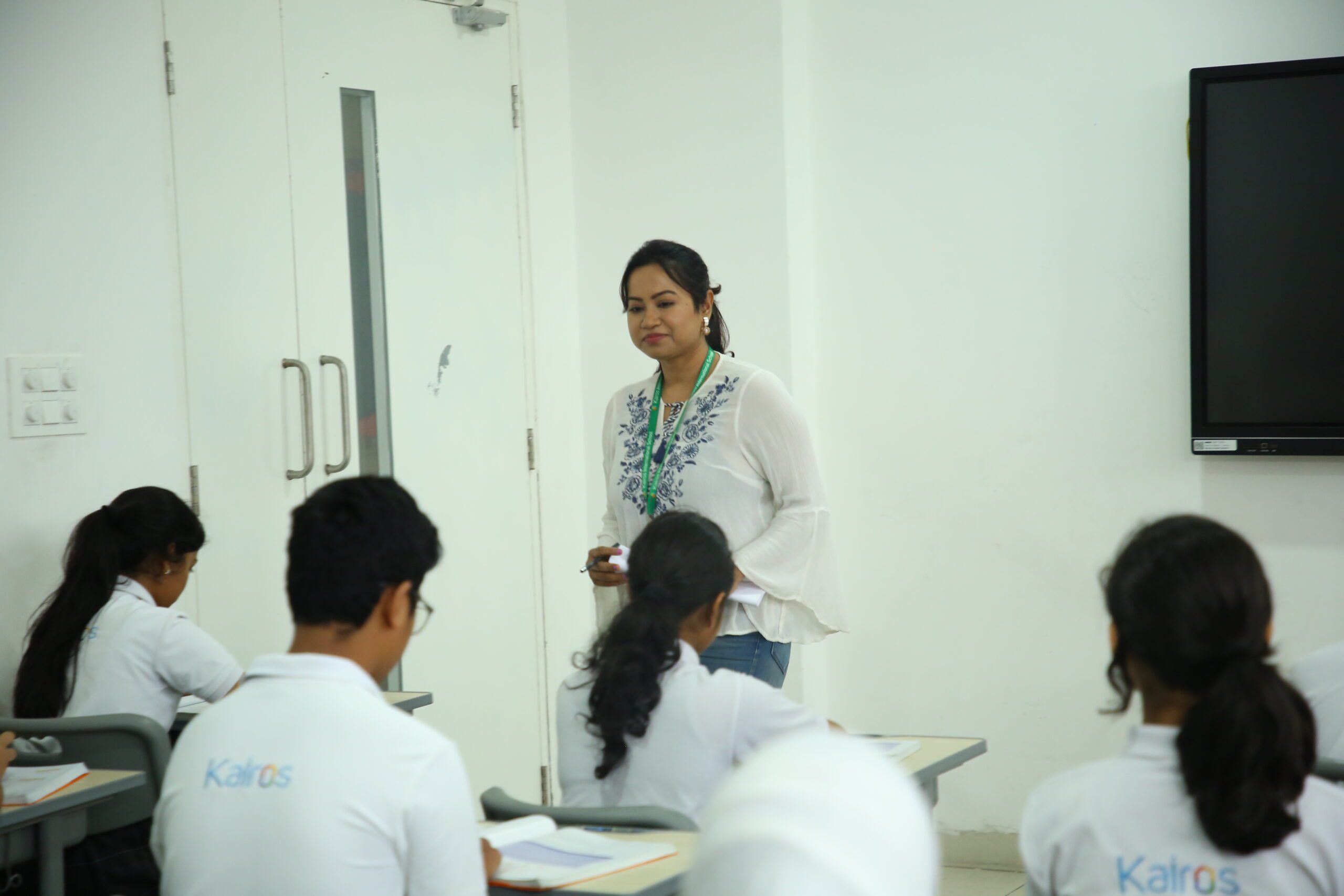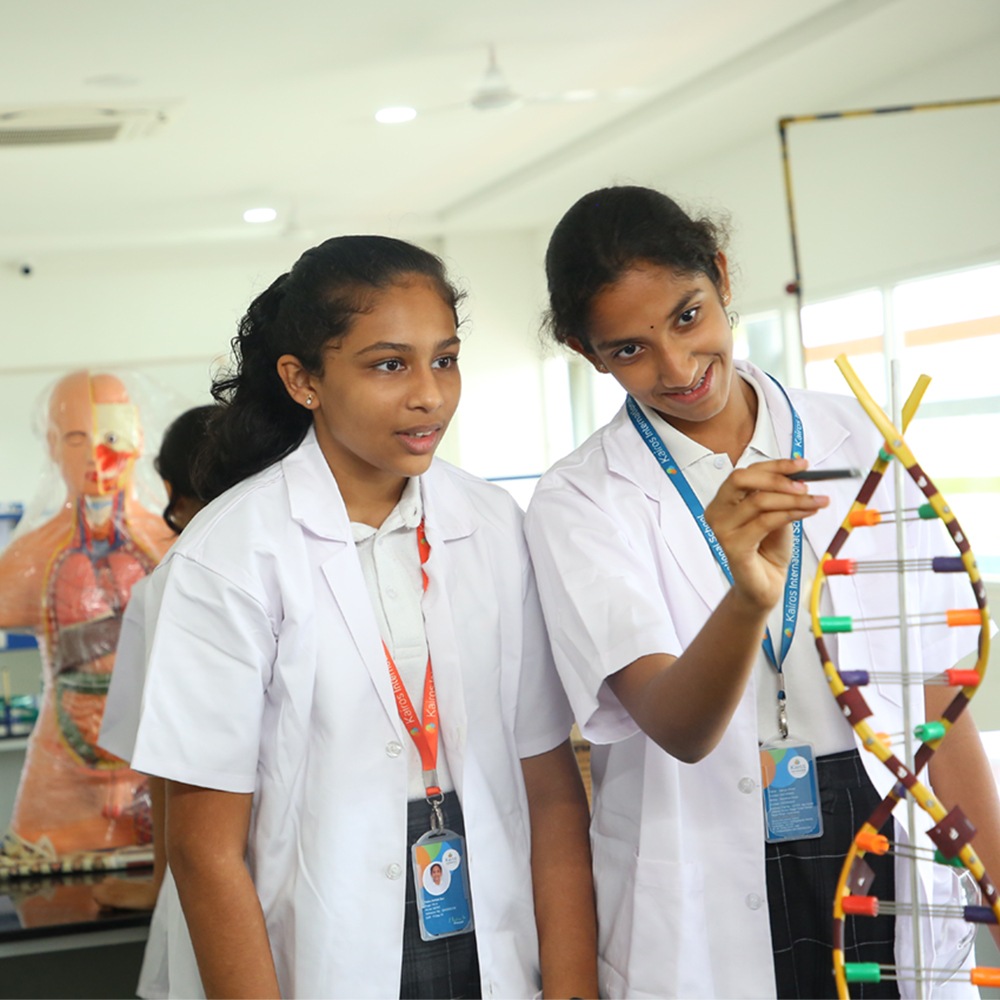
Cambridge programmes inspire students to love learning, helping them discover new abilities and exposing them to a broader perspective of the world. Kairos encourages learners to develop in-depth subject knowledge and higher-order thinking skills, such as problem-solving, critical thinking, independent research, collaboration, and presenting arguments. We help students develop life skills while pursuing academic excellence at all levels.


Acknowledged across the world, Cambridge qualifications often open doors for students to some of the best global universities. CAIE empowers students with a strong skill set as they begin to view the world from a global perspective, free from inhibitions or traditional boundaries. CAIE is recognised by the Association of Indian Universities as equivalent to Indian boards. Therefore, students aspiring to appear for engineering entrance exams (such as AIEEE, IIT, etc.) or medical entrance exams (such as PMT, AIIMS, CPMT, etc.) can do so without apprehension.





Students from Stages 1 to 5 study English, Mathematics, and Science, along with a second language, ICT, Global Perspectives, and Social Studies. Global Perspectives focuses on critical thinking and helps students develop skills in research, analysis, evaluation, communication, and collaboration.
In addition, the ICT programme cultivates essential skills in Information and Communication Technology among students. The school offers French and Hindi as second languages. Students of Stage 3 are taught Social Studies.
The assessment for Cambridge Primary Years is formative, and objective-based subject reports are provided periodically. Summative assessments are conducted in the form of Progression Exams, which are held at the end of each term. Students take the Cambridge Primary Checkpoint examination in English, Mathematics, and Science.
Assessment
We design our assessments to be fair, valid, reliable, and practicable. We assess what we know to be of value: deep subject knowledge, conceptual
understanding, and higher-level thinking skills.
There are two assessment options:
The tests are marked by Cambridge and each learner receives a statement of achievement and a diagnostic report. The Cambridge Global Perspectives assessment is marked by teachers and moderated in Cambridge.
Active learning classroom – happier classroom
In an active learning classroom, students play an important role in their own learning process. They build knowledge and understanding in response to
opportunities provided by their teacher. Active learning helps learners to analyse, evaluate, and synthesise ideas.





Students of Stages 6 to 8 study English, Mathematics, Science, ICT,Global Perspectives, Social Studies, and one second language. The second languages offered are Hindi, French, and Spanish. The ICT programme also develops vital skills in Information and Communication Technology.
Assessment is both formative and summative. Formative assessment includes day-to-day activities, presentations, projects, and lab work. Summative assessment includes Progression Examinations, conducted at the end of each term. The Cambridge Checkpoint examination is taken in English, Mathematics, and Science at the end of Stage 5. This is a diagnostic assessment designed to check learning, compare individuals and classes, and report progress to learners, teachers, and parents. The Checkpoint provides detailed feedback about a student’s strengths and areas for improvement.
Integrating technology in education every day helps students stay engaged. With technology, the classroom is a happier place.
Readathon programme enhances reading skills, while journal writing supports the development of writing skills.
Reading for pure enjoyment enriches children’s lives beyond measure. Research shows that reading for pleasure is more important than wealth or social background in improving a child’s future—socially, emotionally, academically, and vocationally.
Teachers communicate with parents about students’ performance in class by sending messages, homework, worksheets, and uploading photographs through MyClassBoard.
Grand Presentations:
Students present their learning to the parents through presentations.
Project-based learning is an instructional approach designed to give students the opportunity to develop knowledge and skills through engaging
projects based on real-world challenges and problems. PBL presents opportunities for deeper, contextual learning and supports the development
of essential skills related to college and career readiness.
Collaborative learning:
– Skype calls with international schools
– Online concept tests for students
Students use these tests for rigorous practice.






The Secondary 2 programme focuses on preparing students for the Cambridge International General Certificate of Secondary Education (IGCSE). At Kairos International School, students become part of the International Certificate of Education (ICE) award, where they take subjects from all five
curriculum areas specified by Cambridge and meet the conditions set by CAIE.
With a two-year curriculum, students engage in learner-centred and enquiry-based approaches to develop skills in critical thinking and problem solving.
The Cambridge Advanced curriculum propels students towards a stimulating academic trajectory, encompassing a wide range of subjects that foster profound comprehension. Through meticulous assessment methods, including written tests, oral exams, and coursework, students develop the skills and knowledge necessary for future success.
Recognised globally by universities and employers, the Cambridge curriculum instils confidence and offers rigorous preparation for life’s challenges. For students aged 16 to 19, Cambridge Advanced introduces Cambridge International AS & A Levels (55+ subjects), Cambridge Pre-U (20+ subjects), and the prestigious Cambridge ICE certificate, enabling students to expand their academic horizons and achieve notable accomplishments.

The methodology for assessing conceptual understanding, deep subject knowledge, and higher-level thinking skills are two pronged:
The tests are marked in Cambridge and each learner receives a diagnostic report and a statement of achievement. The Cambridge Global Perspectives assessment is marked by teachers and is moderated in Cambridge.
The tests are marked in Cambridge and each learner receives a diagnostic report and a statement of achievement. The Cambridge Global Perspectives assessment is marked by teachers and is moderated in Cambridge.
Secondary Programme 2 focuses on preparing students for the Cambridge International General Certificate of Secondary Examination (IGCSE). Within IGCSE, students at Kairos international school become a part of the International Certificates in Education (ICE) awards where they take subjects from all the five curriculum areas given by Cambridge and satisfy certain conditions laid out by CAIE. With a two-year curriculum, students are exposed to learner-centric and enquiry-based approaches to learning to develop skills in critical thinking, and problem-solving.
English -1st language Hindi, French and Spanish – 2nd language
Economics / History
Physics, Chemistry Biology /Combined Science
Extended Math
ICT
| Group 1 | Group 2 | Group 3 | Group 4 | Group 5 |
| Languages | Social Sciences | Sciences | Mathematics | Creative, Technical Vocational |
| English | Economics/ History | Physics | Extended Math | ICT |
| Hindi/French/Spanish | Chemistry | |||
| Biology | ||||
| Combined Science |
Students of stages 1 to 5 study English, Mathematics and Science along with a Second Language, ICT, Social Studies and Global Perspectives. Global Perspectives focuses on Critical thinking and enhances skills of research, evaluation,analysis, communication, and collaboration among the student.The ICT program cultivates skills in Information and Communication among the students.The school offers French and Hindi as second language.


Cambridge Secondary Students of Stages 6 to 8 Kairos international school, the Best CAIE Schools in Hyderabad, study English, Mathematics and Science, ICT, Global Perspectives and Social Studies and one Second language. The Second languages offered are Hindi and French.
Assessment will be both Formative and Summative. Formative Assessment includes presentations, day-to-day activities, projects and lab work. Summative Assessment includes Progression Examinations at the end of each term. The Cambridge Secondary 1 Checkpoint examination is taken in the subjects English, Science, and Mathematics at the end of Stage 8. This is a diagnostic assessment to compare individuals and classes, check to learn, and report progress to students, parents, and teachers. Secondary Checkpoint 1 provides detailed feedback about a student’s strengths and weakness
